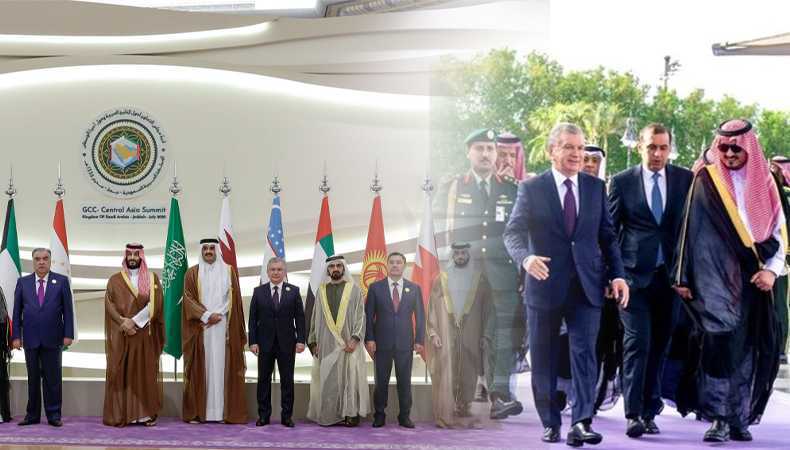Arab Gulf States and Central Asian Countries Strengthen Ties at GCC-C5 Summit

The GCC-C5 Summit took place in Jeddah, Saudi Arabia, on July 19, 2023, and was attended by the presidents of Uzbekistan, Turkmenistan, Kazakhstan, Tajikistan, and Kyrgyzstan, as well as the GCC member nations. The summit aimed to strengthen the two blocs’ political, security, and economic ties and promote collaboration during the years 2023 through 2027.
A Joint Action Plan for Strategic Dialogue and Cooperation between GCC members and Central Asian states was approved as a result of the conference. The plan proposes joint initiatives in several areas, including politics, economics, security, culture, and education. The leaders of both blocs emphasised the importance of strengthening bilateral and collective political and strategic ties. They emphasised the value of collaboration to accomplish regional and global security and stability, face difficulties, and improve flexibility in various contexts, from supply chains to food security.
Economic cooperation between the GCC and Central Asia has gained momentum recently. With Central Asia benefiting from a young and growing labour population and the GCC countries from abundant oil and gas resources, both areas have complementary economies. Opportunities for commerce, investment, and tourism cooperation have aroused shared interest.
Historical relations between Central Asian nations and GCC members go back to the time of the Silk Road. However, these links were severed due to the Soviet Union’s fall in 1991. The GCC-Central Asia Dialogue was founded by the GCC and the C5 states in 2001 to mend these ties. Since then, many conferences have been conducted to strengthen regional collaboration and relations.
In the ongoing initiatives to strengthen economic and security cooperation, the GCC-C5 Summit represents a critical turning point. Leaders expressed worry over rising racism and Islamophobia, as well as incidents of violence against Muslim minorities and Islamic symbols, throughout the summit, underscoring their commitment to tackling these problems.
The leaders discussed collaborative infrastructure projects to deepen their connections, with Sadyr Japarov, the president of Kyrgyzstan, urging collaboration on the construction of railways connecting Central Asia to the Gulf. In 2021, the trade value in products between the GCC and Central Asian nations totalled $3.1 billion, or 0.27 per cent of the GCC trade in goods.
As terrorism and extremism pose more significant challenges to both regions, security cooperation has also increased. By creating a bilateral security dialogue, coordinating counterterrorism operations, exchanging intelligence and information, and training security forces in counterterrorism and other security-related topics, the GCC and Central Asian nations agreed to enhance their security cooperation in 2022.
The summit signalled development in the GCC and Central Asian strategic alliance. The leaders’ shared goals and hopes for a better future in the region were evident as they emphasised respecting one another, refraining from meddling in one another’s private lives, and working together to protect the world’s food and energy supply lines.
The leaders underlined their dedication to fostering cooperation for increased regional security and stability as the world faces several challenges. The summit’s outcomes are anticipated to open the door for more substantial business and investment ties, bringing the GCC and Central Asian nations closer together for the good of both areas.




